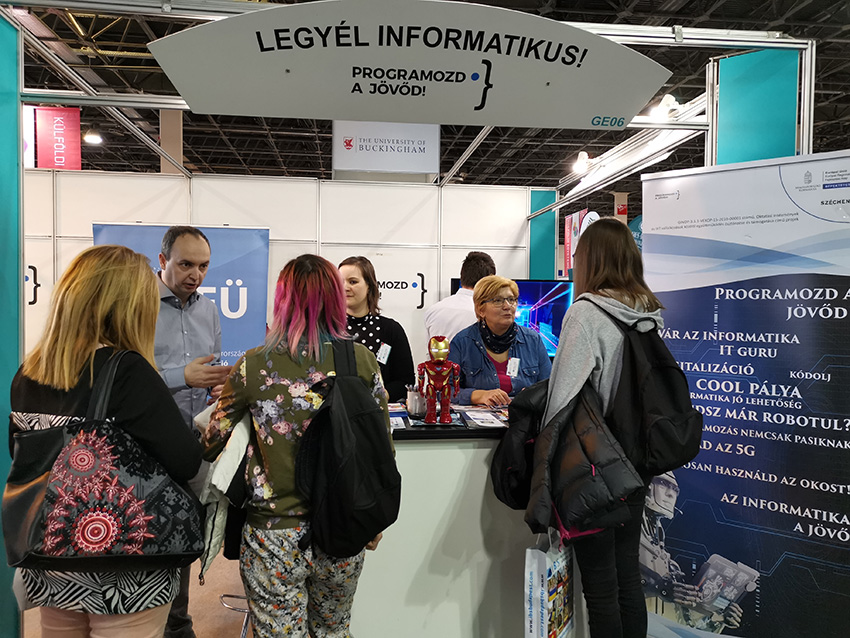Companies increasingly demand IT skills and competencies. To ensure its citizens have what it takes to compete in the information age, this EU-funded ‘Programme your future’ project set out to promote IT courses at Hungary’s leading universities and encourage young people to pursuit a career in IT.
- 01 June 2021
After the closure of the project, the values created and implemented will not be lost. The 21 cooperating universities, along with the faculty members who completed the market courses provided by the project, will continue to educate new students in use of the modern laboratory environment. Existing IT students who participated and passed exams in project-funded courses can easily find employment in the labour market, so the shortage of IT professionals in Hungary is expected to decrease.
The project tailored university curriculums and other educational opportunities to meet the needs of ICT businesses. In particular, the project focused on providing high-level IT knowledge to students who are not specifically involved in IT training, by supporting the introduction of interdisciplinary courses in higher education.
The project collaborated with several internationally recognised IT companies to gain a better understanding of labour market needs and current best practices. Together with these partner companies, the project worked with all 21 of Hungary’s universities that offer IT coursework, to help them create curriculums that will provide students with skills that match market needs.
Matching curriculum with market need
A total of 147 lecturers were trained and 11 industry-certified courses were created. The project created a database of IT professionals willing to give guest lectures at universities. All universities were equipped with the latest in digital equipment and teaching aids.
With the courses in place, a promotional campaign was launched to raise awareness about the lucrativeness of a career in IT. This included holding guest lectures and programming events at local high schools.
The project continues even after students graduate. Upon successfully completing their exams, they are paired with ICT companies for a paid internship programme.
Digital experience centres
In addition to college courses, the project established digital experience centres, public facilities that give students and families an opportunity to gain a hands-on look at the IT profession. Visitors can get training in basic computer skills, or learn more about such advanced technologies as virtual reality and smart home devices.
The centres are located in Győr, Budapest, and Debrecen. A fourth centre will be opened in Zalaegerszeg. All offer free all-day classes for school groups and welcome families on weekends. More than 1 200 sessions have already taken place, benefiting over 19 000 citizens.
As a result of the project, Hungary is seeing an increase in the number of young people applying for education in IT. In 2016, 5 166 people applied for a full-time BA university education in IT. In 2019, this number increased to 6 860 applicants.
Total investment and EU funding
Total investment for the project “Encourage and support cooperation between educational institutions and ICT enterprises” is EUR 24 987 957, with the EU’s European Regional Development Fund contributing EUR 21 521 962 through the “Economic Development and Innovation Operational Programme” for the 2014-2020 programming period. The investment falls under the priority “Competitive labour force”.

